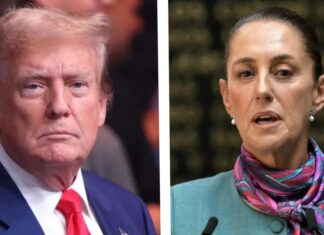Northern power brokers dig in deeper against bills, Southern federal lawmakers insist current VAT sharing formula not fair
By Jeph Ajobaju, Chief Copy Editor
Bauchi Governor Bala Mohammed is very public in railing against Bola Tinubu’s Tax Reform Bills now stalled at the National Assembly (NASS), but the greater campaign against the initiative is conducted mostly in private among members of the Coalition of Northern Groups (CNG), Northern Elders’ Forum (NEF), and others.
The groups have again insisted on the withdrawal of the bills despite the President deploying Senators to intensify lobby for public acceptance of the proposals that will simply impose more taxes and hardship on citizens without relief from the government.
Both CNG and NEF demand further consultations and extensive dialogue with stakeholders on the bills.
CNG Gombe Coordinator Mustapha Deba disclosed that the coalition has analysed the bills and discovered that if allowed to scale through, they would have far-reaching adverse effects on the North.
Deba made his presentation at a one-day townhall at Gombe State University on the theme, “Tax reform bill: A catalyst for economic growth or a burden on the people?”
Said he: “The proposed reform’s emphasis on derivation appears to favour states with higher VAT-generating activities predominantly in the South, such as Lagos. This shift could significantly reduce the revenue shares allocated to Northern states, where economic activities are comparatively lower.
“The resultant financial shortfall would impede our region’s development initiatives and exacerbate existing disparities. By altering the VAT sharing formula without adequate safeguards, the reform risks widening the economic gap between the North and South.
“Such an outcome could foster social unrest, trigger migration to economically stronger states, and precipitate other socio-economic challenges. We must avoid any policy that could deepen regional inequalities.”
A major point of contention, he stressed, is the absence of comprehensive data and analysis to support the proposed changes.
“As we reflect on the implications of the tax reform bills, it is imperative that we advocate for a tax system that fosters national unity and economic prosperity. We cannot afford to endorse reforms that deepen existing divides or marginalise any segment of our society.”
In another presentation at the townhall, Sadiq Abubakar, a professor, noted that the Tax Reform Bills have ignited considerable debate that often reveals the polarising sentiments of various stakeholders across the nation, especially regarding their implications for the North.
“The proposed reforms are expected to streamline tax administration processes and frameworks, increase overall government revenue, and stimulate sustainable economic growth, to mention a few,” he said.
“Nevertheless, these reforms would come with socio-economic repercussions, particularly for Northern Nigeria, which struggles with distinctive challenges ranging from insecurity, poverty, unemployment, and food insecurity.
“Proposed changes to Value Added Tax [VAT] rates, distribution of VAT revenues, development levies, and taxation on various sectors including agriculture and religious organisations, could exacerbate existing economic hardships and cultural tensions.
“Some sections of the bills clash with religious values, risking the marginalisation of some faithful.
“To avoid exacerbating socio-economic disparities and to establish a fair and more inclusive taxation framework, policymakers must consider the unique cultural and economic landscapes of all regions, especially Northern Nigeria.
“Engaging in comprehensive dialogue with varied stakeholders will foster legislative outcomes that respect the rights and welfare of all citizens, ensuring a balanced approach to taxation that promotes national unity and economic stability.”
Umar Gurama, who chaired the event, urged the participants to collaborate with lawmakers in sensitising communities and gathering their inputs before such reforms become law.
Taking it from there, NEF pointed out the alleged failure of the federal government to engage with critical stakeholders and experts before drafting the bills.
NEF made its position known in a statement signed by its Management Board Chairman Al-Amin Daggash.
He said: “Once again, it is necessary to reiterate, that indeed, Nigerians in general and Northerners in particular, are not really against the introduction of any form of good and meaningful reforms by those in positions of authority, at the federal, state or local government levels.
“Even though we shall remain very implacable in reaffirming that our practical experiences teach us that going by global best practices, successful reforms are known to be underpinned by strict adherence to certain common cardinal characteristics of the public policy-making process.
“For the convenience of exposition, these similarities include, but not limited to the under-listed essentials:
- “Extensive pre-reforms early engagements with experts and critical stakeholders, in order to secure their buy-in;
- “establishing a very well-defined media/communication strategy that clearly articulates the full import of the reforms and disseminates public awareness and mass enlightenment on a nationwide scale;
- “designing a robust, transparent and inclusive implementation mechanism.
“The Northern Elders’ Forum makes bold to say that the recently proposed Tax Reform Bills by the federal government were clearly in breach, with regards to adhering to the above-listed common characteristics of reforms and public policy-making process, all over the world and in conformity with the global best practices.”
Senators lobby at the behest of Tinubu
Among NASS lawmakers lobbying Northerners on behalf of Tinubu is Senator Ned Nwoko (APC, Delta North) who confirmed that Southern lawmakers are engaging their Northern colleagues.
“We are engaging them,” he told The PUNCH. “The tax bills are generally a welcome development because they seek to support low-income earners and small businesses across the nation.
“They are equally pro-consumers across the board. We need more awareness amongst the populace. This is the first time that tax administration is being consolidated for easier administration with a special ombudsman to effectively determine disputed assessments.”
Mohammed keeps on stoking the fires of objection
Mohammed the Bauchi Governor reiterated his opposition to the tax bills, insisting that the Villa did not obtain the buy-in of stakeholders before sending them to the NASS.
He expressed through his Media and Publicity Adviser Mukhtar Gidado the danger of forcing the tax reform bills on Nigerians.
“The advice [by Mohammed] aims to foster dialogue and advocate for policies that protect the interests of ordinary Nigerians, particularly those in economically disadvantaged states,” Gidado explained.
“When Governor Bala Mohammed asserted that the Presidency’s attempt to shove the discredited tax reforms down the throat of Nigerians was a recipe for anarchy, he spoke from the position of someone who is closer to the populace and who carries the mandate of not only the over seven million people of Bauchi State but who also possesses an intimate knowledge of a very significant sub-regional group in the country.
“It is not by accident that his genuine reservation against the tax reforms coincides with those of some APC Governors who have consistently warned against implementing the proposed reform in its present form.
“If the Presidency had genuinely desired an all-inclusive tax reform that would command the buy-in of various stakeholder and sub-national groups in the country, it could have subjected a draft to discussion before railroading it to the National Assembly. It did not.
“Even when it was given a soft landing by the National Economic Council, NEC, a body headed by the Vice President of the country and which, by that token, was expected to command the respect of the President, its advice that the reform be taken back [to the grassroots for more consultation and dialogue] was blatantly disregarded.”
Take from the House of Representatives
A House of Representatives member, Joshua Gana (APC, Lavum/Mokwa/Edati Federal Constituency, Niger) rallied for support for the bills, saying the areas of controversy would be addressed at a public hearing.
“As a National Assembly, we will debate all issues raised at public hearings, and answers will be proffered and considered. The finalised document for Fiscal and tax reform will be harmonised and passed,” he told The PUNCH.
But another Rep, Aliyu Mustapha (PDP, Ikara/Kubau Federal Constituency, Kaduna), urged Tinubu to educate the public to energise support for the bills.
“Consultations and more engagement with the stakeholders are very important. I believe in the power of lobby and sensitisation.
“Critical stakeholders should be lobbied for a win-win deal, and the general populace should be sensitised. There is really an urgent need to reform our tax system to bring about the desired development we all yearn for,” he counselled.
Take from the Senate
Senator Neda Imasuen (Edo South), argued that the current VAT sharing is inequitable and favours of the North, wondering why Kano and Jigawa would benefit from VAT generated from the consumption of alcohol in the South.
His words: “As a member of the Appropriation Committee of the Senate, I have colleagues from the Northern region around me. Some of my colleagues believe that the reform is necessary, the reason being that they want to change the status quo from Governors coming to Abuja for handouts and that the tax reform will make the Governors think out of the box.
“They will also be able to raise funds in new ways in their respective states.
“Most of them believe that this reform is not favourable to the North and I ask them, ‘in what way?’ They said that it is not equitable. And I try to engage them to know their views about the inequitable nature of the reform.
“Right now, VAT is shared based on 20 per cent consumption, 20 per cent for the place where the revenue is generated and 60 per cent based on population.
“I always tell my Northern colleagues that this is where the inequity lies. Tax is collected in a state that consumes a particular product, let’s say alcoholic beverages for example, and that state has only three million population.
“It only gets a fraction of the VAT, but a state like Kano gets a chunk of the tax because it has a large population. That is the inequity we are trying to point out to them.”
Read also:
Kyari reveals his Almajiri survivor background as proof of hardwork to lead NNPC













